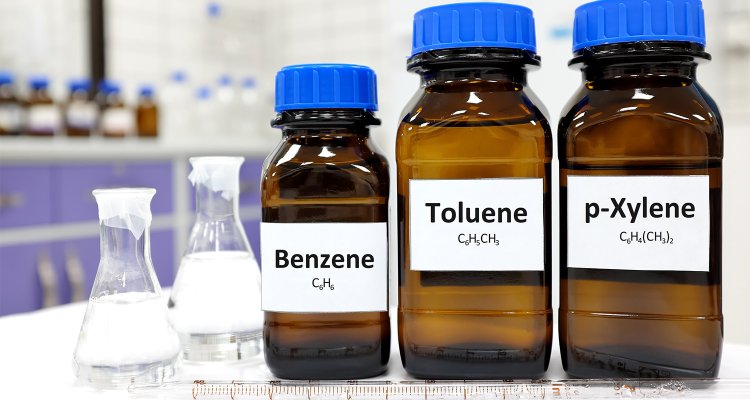
Project
MicroBTX: Catalyzing a Green Revolution in Aromatic Chemistry
Aromatic hydrocarbons are an important class of petrochemicals for the manufacturing of numerous materials. However, they are predominantly produced from non-renewable fossil fuels, as biological production routes are unknown. We aim to identify and engineer novel enzymes to establish the bio-based microbial production of benzene, toluene, and xylene, one of the most industrial dominant chemicals nowadays.
Background
Aromatic hydrocarbons are an important class of conventional petrochemicals that have widespread applications in the production of multiple industrial and consumer products.
The most prevalent of these hydrocarbons are a group of molecules called BTX, consisting of Benzene, Toluene and Xylenes. These compounds are widely applied as building blocks to produce various chemicals, such as polymers, pharmaceuticals, coatings, isolation materials, antiknock gasoline additives, etc . Due to their importance, the global BTX market was valued at USD 6.71 billion in 2022 and is expected to have an annual growth rate of 5.22%, reaching USD 9.12 billion by 2028. However, BTX is almost predominantly produced from petroleum naphtha, derived from the refining of crude oil, which is a nonrenewable fossil fuel with limited resources and has a serious environmental impact. Therefore, there is a pressing need to explore alternative renewable resources to produce these aromatic hydrocarbons.
A possible alternative is using microbial cell factories to produce these aromatics in a bio-based manner. Microbial cell factories can be engineered to convert sustainable and renewable feedstocks to highly valuable chemicals, such as aromatics. This engineering can be done by either altering the existing enzymes within the microorganism or introducing new genes that encode enzymes capable of catalysing the desired reactions. However, the microbial production of the BTX chemicals is currently unattainable as there are no biosynthetic pathways and enzymes known yet. Therefore, there is a need to develop and engineer novel enzymes to enable this conversion and propel the currently fossil-fuel-dependent BTX industry towards a more sustainable future.
Project description
This project aims to enable the microbial production of the BTX chemicals, benzene, toluene, and xylene from renewable resources, reducing the current environmental footprint. We aim to identify and characterise promiscuous enzymes that can convert non-petroleum feedstocks into BTX. Then, the selective enzymes will be further engineered to improve their efficiency and specificity for better conversion rates. At last, their production will be realised from renewable feedstock.
Main goals
- Constructing microbial with growth coupled scenarios for high-through put enzyme engineering
- Construction of novel biosensors for high through put enzyme engineering
- Metabolic engineering of P. putida for BTX production